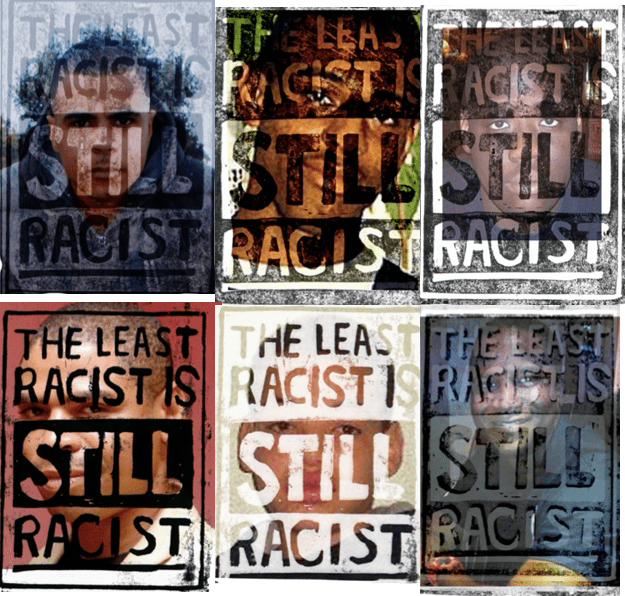If you are white you are more likely to live a good quality life to an elderly age. Now please, read that again. Keep reading until that fact is engrained in your mind and impacts how you move through the world.
The facts are tough to face and you might not like them, but if you are a white person currently living in the UK, scrap that, the West, you need to wake up to the world that you have been born in to.
Being born white means being described by your physical attributes, not just your race, seeing yourself represented in the media and positions of power, and never having your race politicised against your will. You may be reading this and thinking ‘we live in the UK; this doesn’t apply to us, racism is an American issue’. I would direct you to, amongst others, the cases of Brian Douglas, Sarah Reed and Seni Lewis, who demonstrated that people of colour, unlike white people, cannot trust the system to protect them. I would also ask you to explain why people of colour are twice as likely to be unemployed than their white counterparts, black people are six times more likely to be stopped and searched by police or why people of colour are still asked where they’re really from, rather than it being accepted as being British. These are uncomfortable truths and, if hearing them for the first time, they might not sit well with you. Imagine how those suffering as a result of them feel.
To understand white privilege is to appreciate that it does not trivialise the challenges that a white person may have experienced in their lives; but sets them in a context which means their race will not have been the cause of that struggle. Moreover, their race will have positively impacted them at some point in their life. In its essence, white privilege is an absence of the daily pain, oppression and violence people of colour experience in a system which they are expected to learn and grow within.
Understanding the level of privilege you have been entitled to hinges on one thing: education. In order to help dismantle the structures that allow and ease racism, you must first be aware of the real-life impacts they have.
Read – “Why I’m No Longer Talking to White People About Race” by Reni Eddo-Lodge and “Me and White Supremacy” by Layla Saad are great starting points. Diversifying your feed can also help you to understand the lived experiences of people of colour on a day-to-day basis.
Listen – When people of colour are talking about their lived experiences, hear what they say. Don’t speak over their realities – you may be aware, but it is not your experience, nor is it yours to claim. Saviourism isn’t a good look. There are also hundreds of podcasts on the history and legacy of white supremacism; ‘Adulting’ interviews multiple guests on these topics.
Talk – You must be actively anti-racist, being “neutral” is giving room to racist sympathies. Speak up when you hear racist language or slurs and correct people when they are wrong. Talk to your friends and discuss these issues with them but please, do not put the onus on your friends of colour to educate you. It is not their job to continuously speak against all forms of racism in the hope that those perpetuating the system will learn.
Support – Advocate for positive discrimination by understanding that organisations must reflect the society that they serve. Do not stop until discriminatory trends in all sectors end.
Black lives matter. Repeat this, believe it and manifest it until there is no longer a need to.
Annabelle Levins
Artwork by Harpriya Kaur, @fineartpriya

